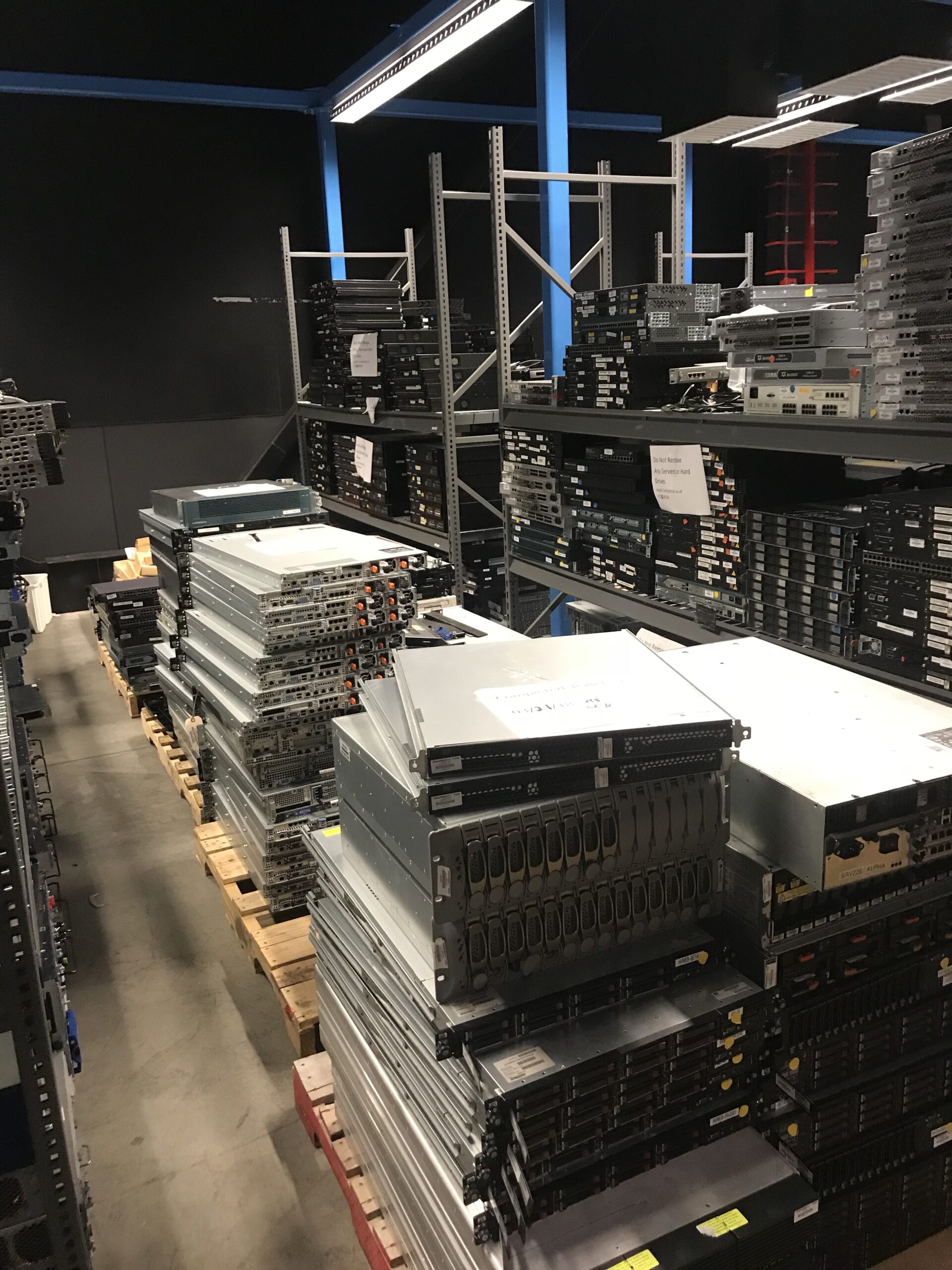A Guide for Different Organizations
Electronics recycling is the process of recovering materials from used electronics and appliances. It is an important part of waste management, as it helps to reduce the amount of electronic waste that ends up in landfills. Also, electronics recycling helps conserve natural resources and prevent pollution. New materials made from recycled feedstocks have significantly lower environmental footprints.
The environmental impact of e-waste is significant. Electronic devices contain a variety of hazardous materials, such as lead, mercury, and cadmium. These materials can pollute the environment if they are not disposed of properly. For example, lead can contaminate soil and water, and mercury can be released into the air. Some electronics scrap has commodity value, and some has negative value.
Different Types of Organizations
There are three main types of organizations that need to manage their electronics recycling:
- Outsource businesses do not have the resources or expertise to manage their own electronics recycling programs. These businesses can outsource their electronics recycling to a company like Electronics Value Recovery (EVR).
- Insource businesses have the resources and expertise to manage certain aspects of their own electronics recycling programs. These businesses can than outsource the rest of the processing to EVR to help them develop and implement an effective electronics recycling program, even though it may not be their core focus.
- Scrappers collect and sell used electronics. These businesses can use EVR’s market for scrap electronics to maximize the value of their materials.
Electronics Value Recovery Has Experience
At EVR, we understand that every organization has different goals, resources, and capabilities when it comes to managing scrap electronics. Therefore, we offer a variety of solutions to cater to your unique needs. One question we often encounter is, “Is my business going to make money off of my scrap electronics?” In this blog post, we will address this and clarify the expectations for different types of organizations and sizes.
To start, in these conversations we frequently emphasize that the value derived from scrap electronics can often be minimal. It is primarily the resale of electronics that drives value recovery. Holding onto electronics for extended periods of time can significantly degrade this value due to the rapid pace of technology obsolescence. Moreover, some e-scrap can be of negative value due to the harmful substances used in their creation, which require specialized handling and disposal at a cost even to companies like ours.
This means that you need to be proactive in recycling your electronics. In addition, it helps to understand that if your company has held onto items for an extended period of time, it may be more costly to recycle than newer items.
Summary Table
| Small | Medium | Large | |
|---|---|---|---|
| Outsource Businesses |
Charge (Minimal Value) | Charge (Minimal Value) | Potential Profit/Charge (Varies) |
| Insource Businesses | Break Even (Minimal Value) | Potential Profit (Resale Value) | Potential Profit (Resale Value) |
| Scrappers | Potential Profit (Minimal to Negative Value) | Potential Profit (Resale Value, with caution) | Potential Profit (Resale Value, with caution) |
Factors to Consider
As a rule of thumb, the more effort your organization puts into sorting, disassembling, and selling valuable parts, the more potential there is for profit. However, this comes with a trade-off in terms of the time and resources required. Also of note, is that this table assumes for businesses except scrappers that you are handling a normal office mix of materials. Depending on your industry, you may have very specific electronics recycling needs outside of supporting home or office based employees.
At EVR, we work closely with you to strike a balance that suits your business, helping you optimize the value recovery from your electronics while managing the associated costs and efforts. Our expertise is here to help you navigate the complexities of electronics recycling and information technology asset disposal (ITAD). Whether you’re an outsource business, a incource business, or a scrapper, we can provide a solution tailored to your needs.
Organizations of different sizes and scopes should have different expectations. These are not hard and fast rules that apply in every specific situation, but generally what we’ve seen. The mix and type of electronics being recycled, the number of locations serviced, and the services requested (like on-site hard drive shredding vs. off-site) by the supplier of items can strongly impact the costs. Regardless of your size, large quantities of mostly plastic items, screens, or embedded battery items should have an expectation of a cost to dispose.
Let’s dive deeper into the expectations for each type and how they might profit—or not—from their scrap electronics.
1. Outsource Businesses
These organizations prefer to work with one vendor, from planning, to pickup and packaging to logistics and asset management services, to ITAD and Electronics Recycling to an external entity like EVR.
Small to Medium Outsource Businesses:
These businesses often incur a charge to cover the costs of the services we provide. The value of the scrap electronics usually isn’t enough to offset the cost of the services, resulting in a net expense. Many items have hard costs related to their proper disposal. However, this expense is typically much smaller than the potential cost of handling the disposal improperly.
Large Outsource Businesses:
These organizations may be able to turn a profit from their scrap electronics due to the large volumes they generate. That said, the profit is often a small fraction of their upfront expense, and exceptions do exist. Extra services or additional logistics costs may turn this potential profit into a cost.
2. Insource Businesses
These businesses, often IT companies, Managed Service Providers, or Business Services companies have existing infrastructure to handle certain aspects of ITAD and electronics recycling.
Small Insource Businesses:
These businesses can expect to roughly break even. They need to invest significant effort into managing the process, including finding multiple outlets to send items to.
Medium to Large Insource Businesses:
For these organizations, managing scrap electronics can become a profit center. Their larger scale, higher volumes, and greater involvement in the process allow them to bear certain costs themselves and maximize the value recovered from their scrap and reusable electronics.
3. Scrappers
Scrappers do significant work, such as disassembling devices into their different parts.
Small Scrappers:
These individuals or businesses can often make money because they have low overhead and are not paying for their time. However, it’s important to remember that not all scrap is valuable, and disposal costs for low-value items can add up.
Medium to Large Scrappers:
These organizations need to carefully manage labor, overhead, and acquisition costs to ensure profitability. They will also end up with negative value items, just like smaller scrappers, and must keep disposal costs in mind.
EVR’s Services
EVR offers a variety of services to help businesses recycle their electronics. These services include:
- Planning: EVR can help businesses develop and implement an effective electronics recycling program.
- Pickup and packaging: EVR can pick up and package electronics for recycling.
- Logistics: EVR can manage the logistics of shipping electronics to recycling facilities.
- Asset management: EVR can help businesses track and manage their electronic assets.
- ITAD: EVR can help businesses dispose of IT assets in a secure and environmentally responsible manner.
- Electronics recycling: EVR can recycle electronics in an environmentally responsible manner.
Conclusion
Electronics recycling is important for the environment and the economy. EVR offers a variety of services to help businesses recycle their electronics. Contact EVR for more information about electronics recycling.

